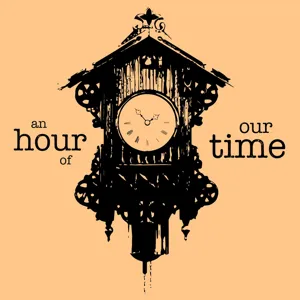Podcast Summary
The Attack on Pearl Harbor and the Wartime Incarceration of Japanese Americans: The surprise attack on Pearl Harbor in 1941 led to chaos, violence, tragedy, and heroism, and ultimately resulted in the wartime incarceration of 120,000 Japanese Americans, most of whom were citizens.
The attack on Pearl Harbor in 1941 was a shocking event that led to the incarceration of 120,000 Japanese Americans, most of whom were citizens. John Daly reported from the CBS newsroom about the Japanese attacks on American naval bases at Pearl Harbor, Hawaii, and our defense facilities in Manila, Philippines. Craig Nelson, a historian, has extensively researched the topic and written a book, "Pearl Harbor from Infamy to Greatness," which provides a detailed account of the attack from both the Japanese and American perspectives. The attack brought chaos, violence, tragedy, and heroism, and set the stage for the wartime incarceration of Japanese Americans. Today, it's important to remember this history and the lessons it teaches us about the importance of understanding complex events and the impact they can have on individuals and communities. Additionally, the commercial messages in the text encourage listeners to shop for unique rings at Blue Nile and find professional talent on LinkedIn.
U.S involvement in China-Japan conflict driven by politics and xenophobia: The US entered the China-Japan conflict due to Japan's invasion of French Indochina, militaristic government, and disrespect towards Western powers, fueled by xenophobia and fear of the unknown in Asia.
The United States' involvement in the conflict between China and Japan during the 1930s was driven by both political and xenophobic factors. After World War 1, the US was isolationist due to the brutal nature of the war and the large number of casualties. However, Japan's invasion of French Indochina, which was an American ally, led the US to impose economic sanctions. Japan's militaristic government, which had taken power through a series of rapid government changes, sought to expand its empire in Asia to secure resources and room for population growth. The Japanese felt disrespected by the Western powers and saw themselves as superior to other Asian countries. They began invading and taking over parts of China, treating the Chinese population harshly. Xenophobia also played a role, as the US had a fear of the foreign and the unknown in Asia. These factors ultimately led to the US entering the conflict in Asia, culminating in the attack on Pearl Harbor in 1941.
Misunderstandings and Prejudices between Japan and America: Deep-rooted prejudices and misunderstandings led Japan to believe they could scare America into withdrawing from the Pacific War. The Japanese held stereotypes of Americans, while Americans saw the Japanese as inferior. Both sides underestimated each other's capabilities, resulting in the devastating attack on Pearl Harbor.
The attack on Pearl Harbor was the result of deep-rooted prejudices and misunderstandings between the Japanese and Americans. The Japanese held stereotypes of Americans as lazy, cowardly, and money-driven, while Americans saw the Japanese as inferior and uncivilized. This led the Japanese to believe they could scare the United States into withdrawing from the Pacific War. Admiral Yamamoto, who masterminded the operation, employed innovative tactics, such as using wooden fins on torpedoes to penetrate shallow waters and leaving American torpedo nets down due to complacency. Additionally, many of the American forces at Pearl Harbor were young and inexperienced, with a median age of 19, and were not adequately trained due to budget constraints. This lack of preparation and misconceptions on both sides ultimately contributed to the devastating outcome of the attack on Pearl Harbor.
Mint Mobile lowers unlimited data plan price, Lume offers deodorant deal, OneSkin discounts skincare, historical fact shared: Mint Mobile cuts unlimited data plan price to $15/month, Lume deodorant offers starter pack deal with code SHARON, OneSkin skincare discounts with code SHARON, historical fact about a mission's unusual route to Hawaii
Mint Mobile is lowering the price of their unlimited data plan from $30 a month to $15 a month, available at mintmobile.com/switch for new customers with a discounted $45 upfront fee for three months. Meanwhile, Lume Whole Body Deodorant, which uses mandelic acid for 72-hour odor control, offers a starter pack with a solid stick deodorant, cream tube deodorant, and two free products, plus free shipping and a 15% discount for listeners using code SHARON at checkout. Additionally, Mother's Day is approaching, and OneSkin's skincare products, which use a proprietary peptide to combat aging cells, offer a 15% discount with code SHARON at oneskin.co. Lastly, an intriguing historical fact was shared about a mission that traveled across the North Pacific during a fall period to attack Hawaii by going way up north and then coming down to avoid traffic.
Refueling at Sea During Pearl Harbor: Despite the surprise attack at Pearl Harbor, the U.S. Navy was able to quickly refuel and resupply their fleet, enabling them to respond effectively and turn the tide in the Pacific War.
During the Attack on Pearl Harbor on December 7, 1941, the U.S. Navy was able to refuel and resupply a large fleet of ships, including destroyers, cruisers, aircraft carriers, submarines, battleships, and an oiler, all while they were at sea. This was a significant achievement as it allowed the U.S. to respond quickly and effectively to the Japanese attack. The refueling operation was carried out early on a Sunday morning when most Americans were still asleep, and the element of surprise was crucial in the U.S. gaining the upper hand. The Japanese were taken aback by the scale and speed of the U.S. response, which resulted in the destruction of a large number of Japanese warships and the turning of several battleships into bombs due to the storage of munitions near their smokestacks. The civilian casualties were relatively low, with around 2,400 military personnel killed. This event marked a turning point in the Pacific War and demonstrated the U.S. Navy's ability to adapt and respond effectively to a surprise attack.
Prepare for the unexpected in life: health and travel: Stay healthy with UnitedHealthcare TriTerm Medical Plans and travel safely with Quinn's. Be prepared for life's changes with flexible and budget-friendly options.
No matter what changes in life, whether it's your job status or travel plans, it's important to prioritize your health and be prepared for the unexpected. UnitedHealthcare TriTerm Medical Plans offer flexible and budget-friendly coverage for those in between jobs or missed open enrollment, providing peace of mind for nearly 3 years in some states. Meanwhile, when it comes to travel, Quinn's offers high-quality essentials at affordable prices while ensuring safe and ethical manufacturing practices. Looking back at history, the attack on Pearl Harbor was a shocking and unexpected event that changed the course of history. Despite warnings and attempts at peace, the attack caught many off guard, including key figures like Admiral Kimmel and President Roosevelt. In the face of adversity, however, innovative solutions like the Doolittle Raid emerged, demonstrating the importance of determination and quick thinking in the face of the unknown. So whether you're planning for your future health needs or your next vacation, remember to be prepared and take advantage of the resources available to you. For healthcare, consider UnitedHealthcare TriTerm Medical Plans, and for travel, check out Quinn's for high-quality essentials.
President Roosevelt's Cover-Up and Eleanor's Address: Despite the devastating impact of the Pearl Harbor attack, President Roosevelt hid the extent of the damage to boost morale, while Eleanor spoke to the nation with confidence. The debate over internment of Japanese residents led to their eventual relocation.
The aftermath of the Pearl Harbor attack was characterized by a cover-up of the extent of the damage by President Roosevelt, who wanted to inspire the American people rather than demoralize them. The attack was devastating, and the pilots who survived were initially hailed as heroes in Chinese territory. Eleanor Roosevelt addressed the nation on the attack before her husband did, expressing confidence in America's ability to overcome the crisis. However, there was a debate over whether to intern the Japanese population in Hawaii, which made up a third of the population, due to the physical impossibility of doing so for the entire population. Ultimately, General De Wet and others pushed for the internment, which was carried out on the West Coast. President Roosevelt was visibly distraught by the loss of life and destruction of the Pacific Fleet.
The Importance of Empathy and Understanding Diverse Cultures: The Pearl Harbor attack serves as a reminder of the dangers of prejudice and the importance of understanding and valuing diverse cultures. It's crucial to challenge biases and strive for a more inclusive and informed perspective.
The aftermath of the Pearl Harbor attack reveals the importance of treating all people with respect and dignity. Despite opposition from influential figures, President Roosevelt ultimately approved the relocation of Japanese Americans due to the Army's belief it was necessary for national security. This event serves as a reminder of the dangers of prejudice and the importance of understanding and valuing diverse cultures. Additionally, the discussion highlighted the existence of a tiered information culture, where certain regions and peoples are seen as more important or worthy of attention than others. This mindset may have contributed to the lack of understanding and empathy towards Japanese Americans during this time. It's crucial to challenge these biases and strive for a more inclusive and informed perspective. So, while the attack on Pearl Harbor is a well-known historical event, it's essential to remember the lessons it taught us about respect, empathy, and understanding. We all have a role to play in promoting a more inclusive and equitable society. If you enjoyed this episode, please consider leaving a rating, review, or sharing a link on your social media to help spread the word. Here's Where It Gets Interesting is written, researched, and hosted by Sharon McMahon, with audio engineering by Jenny Snyder and executive production by Heather Jackson. Thank you for listening.






